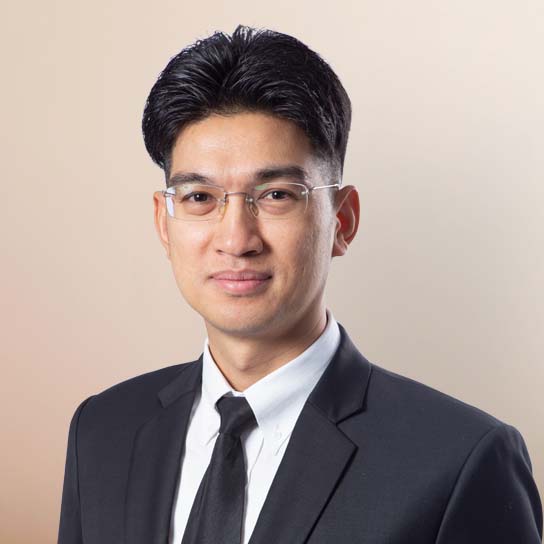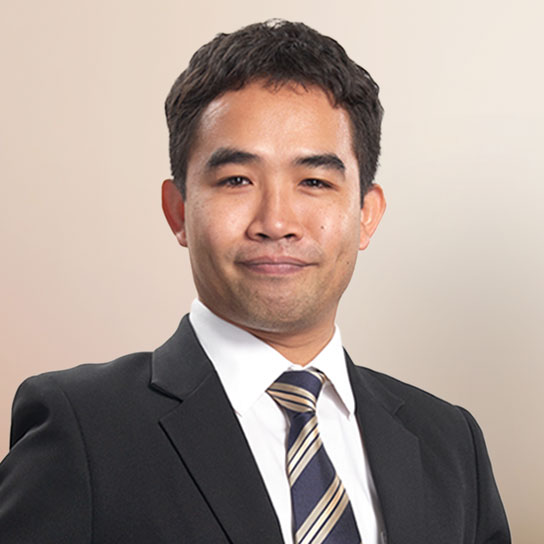-
Articles
The Thai Department of Intellectual Property has announced its new Target Patent Fast-Track: Future Food
Under the initial Target Patent Fast-Track Program (“TPFT”) on “medical science and public health”, effective from June 2022 until the end of 2023, the successful examination acceleration process can be clearly seen in the cases of 46 applications, with the grant of 30 patents and 16 petty patents [in such regard, please see our article “Target Patent Fast Track System” related to medical science and public health]. Following the success of said initial TPFT Program, the Thai Department of Intellectual Property (“DIP”) recently announced its new TPFT “Future Food” program on 8 December 2023, effective as of 1 January 2024; with the aim of accelerating the patent examination process whilst addressing the ongoing public health crisis.
Accelerated Application Process:
All applications for patent under the new program will receive a specially expedited examination with a final decision within 12 months from the date that the said qualified patent application is selected by the DIP. While applications for petty patent under this program will receive a specially expedited examination with a final decision within six months from the date that the said qualified petty patent application is selected by the DIP.
Principles and Rationales:
Consumption of health-promoting foods is becoming increasingly important on a global level. Naturally, this involves employment of technological innovations in the production process to create new foods with enhanced nutritional benefits. The objectives of this program are to encourage patent applications for these Future Food innovations in order to help drive Thailand’s economy through acceleration of the patent registration process such Future Food related products and methods. The scope of these Future Food innovations under this program encompasses products or methods in connection with four types of foods: Novel Foods; Health Supplements; Organic Foods; and Medical Foods, as follows.
- 1) Novel Foods: Foods produced by new methodologies not commonly employed in a normal food production process, such as utilisation of new food processing methods, components or forms, and incorporation of new technologies in the food production, preservation or conservation processes. Examples of these types of foods include plant-based proteins, plant-based meat and plant-based milk. If any product meets the definition of “Novel Foods” under the Notification of the Ministry of Public Health (No.376) B.E. 2559 (2016) Re: Novel Food, the applicant shall be required to submit a safety assessment test and provide the food label to the Food and Drug Administration (FDA) for authorisation before using it.
- 2) Health Supplements: Products that, after consumption, will function beyond satiation and sensory pleasure, for instance, to provide necessary nutritional value and multiple health benefits, enhance the immune system, support bodily functions and conditions, or slow down organ deterioration. Health supplements has two subcategories:
- 2.1) Food Supplements that are replete with beneficial nutrients or have a reduced amount of harmful nutrients, for good health promotion, which can be consumed daily without restriction as a medicine; and
- 2.2) Processed Foods that are derived from natural ingredients with specific health-promoting properties without the adding or reduction of natural nutrients therein.
- 3) Organic Foods: Foods derived from agricultural crops grown without the application of harmful agricultural substances, such as chemical fertilizers, pesticides or radiation. Such foods must not contain genetically modified organisms (GMOs), and must derive from a pollution-free production process, e,g, farming of organic livestock that are necessarily fed with organic foods free of chemical additives, hormones and antibiotics.
- 4) Medical Foods: Foods for patients under a medical prescription to ensure sufficient nutrition for specific health conditions as a substitute for medicines or dietary supplements, including meal replacements, enteral nutrition and specialised foods for patients with conditions like dysphagia or diabetes.
In order to qualify, an application must meet the following criteria and conditions:
- 1. Patent application filed with the DIP and the applicant has submitted a substantive examination request under Section 29 of the Patent Act, B.E. 2522 (1979) and its amendments, or petty patent application filed with the DIP for at least three months;
- 2. Patent or petty patent application related to Future Food innovation, including new foods, health supplements, organic foods or medical foods that have significant commercial potential - and the applicant thereof must have adequate production and distribution plans, or licensing agreements for the innovation;
- 3. Patent application filed in Thailand as a first jurisdiction (without claiming a priority corresponding application filed in any foreign country), or patent application filed in Thailand through the Patent Cooperation Treaty (“PCT”) Receiving Office in Thailand (RO/TH);
- 4. Application with no more than 10 claims throughout the program’s duration;
- 5. Application submitted through the DIP’s e-Filing system or transferred to said system before applying to take part in the program; and
- 6. Application with all required formal documents submitted to the DIP.
- When the applicant has filed the application in satisfaction of the criteria and conditions above, they may proceed as follows:
- 1. Submit a request with reasons for compliance with the required conditions as well as relevant supporting documents, such as comprehensible commercialisation plans, not exceeding four pages of A4 paper; and
- 2. File a request through the DIP e-Filing system during the 1st to 10th days of each month.
- The DIP will announce the selected applications for participation in the program on its website by the 5th day of the following month. Furthermore, the DIP has an absolute right to consider and accept no more than 10 qualified applications per month for participation in the program, and each applicant is allowed to submit only one request per month.
- The DIP announced in April 2024 that there were only two selected Future Food applications for February 2024 and three selected Future Food applications for March 2024 that participated on the program.
- In May 2024, the DIP announced that only two medical science and public health applications were selected for the April 2024 program participation. This contrasts with the April 2024 announcement, which stated that two medical science and public health applications, along with three future food applications, were selected for the March 2024 program.
- After the applications are selected by the DIP, the following conditions for program execution must be met:
- 1. The Target Patent Fast-Track: Future Food Program is a special program with the aim of accelerating the examination of patent or petty patent applications, whereby the competent official will issue an Office Action, if any, through the DIP e-Filing system. Such Office Action would instruct the applicant to attend to a remote electronic meeting for effective correction or additional clarification of the patent or petty patent applications under Section 27 or Section 27 in conjunction with Section 65 decies of the Patent Act, B.E. 2522 (1979) and its amendments.
- 2. If there are any amendments or additional information required pursuant to the official’s order, the applicant must fulfill the requirements within 30 days from the date of the deemed receipt of the notification through the DIP e-Filing system. Failure to do so within the specified timeframe will be deemed a waiver of the right to participate in the program, and the application will be reverted to the normal examination process.
- 3. During the evaluation and examination process of the participated petty patent application, if it is found that another person has filed a patent or petty patent application for the same invention under Section 16 in conjunction with Section 65 decies of the Patent Act, B.E. 2522 (1979) and its amendments, the said application will be reverted to the normal examination process.
- While the number of accepted applications is currently low, this fast-track system benefits both Thai and foreign applicants whose qualified applications are successfully selected to participate in the TPFT. Successful participation in the TPFT gives the benefit of examination and registration processes that are about 4-5 times faster than the standard route.
- Please rest assured that we will provide regular updates on any updates and announcements as the Future Food Program continues to progress. Should you require any further information or have any inquiries, please do not hesitate to contact us at SCL Nishimura & Asahi, Bangkok Office.







Narongcachon joined the firm in 2012 as a member of our Intellectual Property Practice Group. While in the IP department, he has conducted patent prosecution, advising relating to intellectual property matters, conducting patent searches and providing analysis and draft opinions based on the analysis. He is also very hands-on with giving advice on the patentability of an invention, infringement and opposition. He has extensive technical experience in preparing patent specifications, preparing and reviewing design drawings and descriptions, as well as preparing and filing patent, design and utility model applications and responses to office actions with the Thai Patent Office. He is also active in intellectual property and information technology court matters, as well as providing legal advice on emerging legal issues. Previously, Narongcachon worked in the telecommunications industry as a Technical Service Engineer and Service Manager, in the fields of telecommunications and data network technologies, with Siemens Limited Thailand, Siemens AG (Germany) and Nokia Siemens Networks (Thailand) Ltd. As a result, he has high technical expertise in telecommunications and data networks. With a long working history in the telecommunications industry and his academic background in engineering, Master of Business Administration (MBA) and related laws, he is a technical/business minded lawyer and is well attuned to legal developments in the intellectual property, telecommunication and information technology industries.